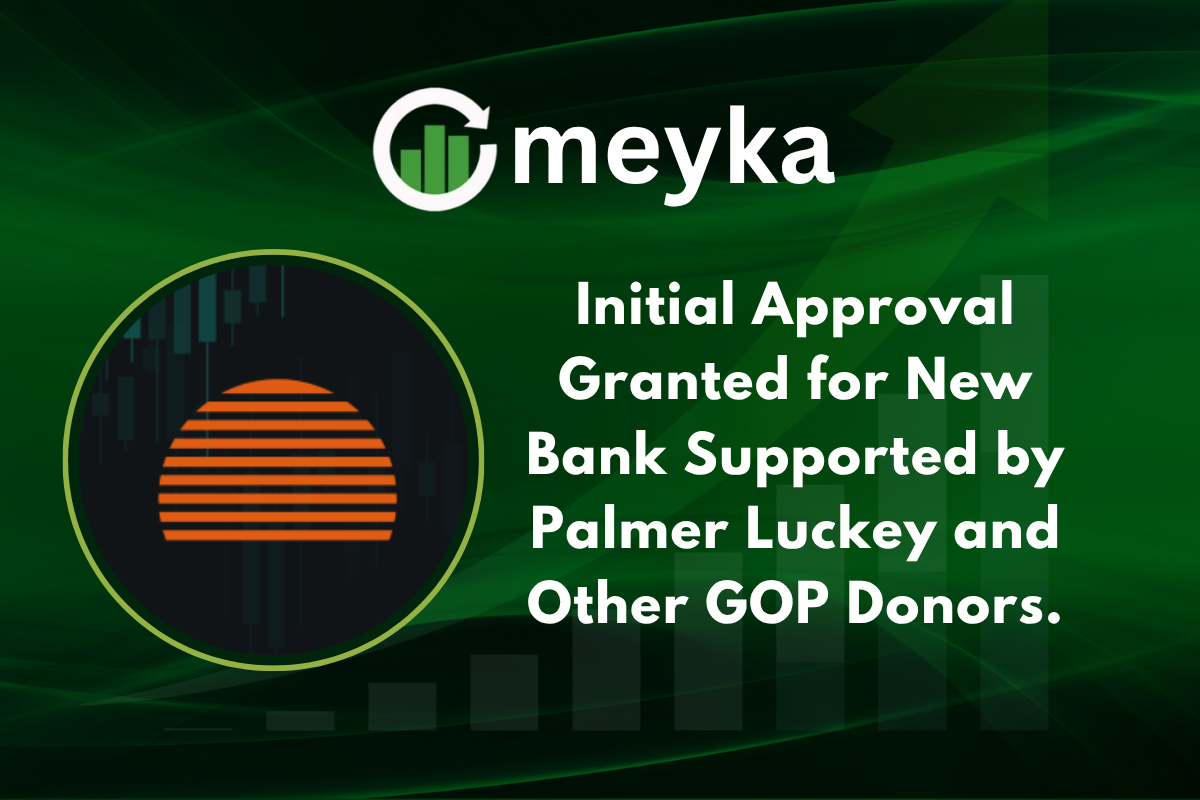Initial Approval Granted for New Bank Supported by Palmer Luckey and Other GOP Donors.
Palmer Luckey backed Erebor Bank wins initial conditional approval, prompting debate over GOP donors, crypto banking, and Washington scrutiny now. The decision marks one of the first major financial charters tied to prominent conservative investors in recent years. Many view it as a bold step toward merging technology and traditional finance.
Supporters say the move could drive fintech innovation and digital asset inclusion. Critics, however, warn that political influence may shape how this new financial venture evolves in the current regulatory climate.
The Rise of Palmer Luckey’s New Financial Venture
Palmer Luckey helped launch a new digital bank called Erebor Bank in 2025. On October 15, the Office of the Comptroller of the Currency granted the bank a preliminary conditional approval.
The OCC said it applied the same rigorous review used for other charters. This approval is not final. The bank must clear more checks before it can take customers.
What Is Erebor Bank and Who Is Behind It?
Erebor Bank is a digital first bank that plans to serve startups, cryptocurrency firms, AI companies, and defense contractors. The charter application lists loans, payments, treasury services, credit card issuance, and stablecoin-related offerings.
The filing says the bank aims to bring token activity into a regulated framework and to operate under strict oversight. Palmer Luckey is named as a principal shareholder and director. The project also shows backing from tech billionaires and investors connected to conservative funding networks.
Why is this happening? Many crypto and tech firms have trouble finding banks that will work with tokenized businesses. Erebor aims to fill that gap with services built for modern startups.
Why the Initial Approval Matters for the GOP and Financial Markets
This approval matters because it sits at the meeting point of finance, tech, and politics. The bank has ties to GOP donors and Trump-aligned investors. The OCC emphasized that digital asset activities can be part of the federal system if conducted in a safe and sound way.
The approval came amid new federal steps that govern stablecoins and tokenized products, and it arrived quickly after the application was filed, which drew extra attention.
What does this mean for investors? It gives crypto and tech firms another banking option. It also raises questions about capital rules, oversight, and political influence.
Reactions from Washington and Wall Street
The reaction split quickly. Comptroller Jonathan V. Gould said Erebor was the first de novo bank to get preliminary conditional approval under his leadership and framed the decision as part of a diverse, modern federal banking system.
Senator Elizabeth Warren criticized the move, calling it risky and warning it appeared tied to political connections. Wall Street analysts said they will watch how the bank handles deposits, lending, and compliance.
Who is worried and why? Senator Warren and consumer advocates want extra caution. Supporters point to the bank’s stated conservative plan and strong capital backing.
How Palmer Luckey’s Vision Could Reshape Banking Innovation
Palmer Luckey brings a tech founder’s view to finance. The venture reports roughly $275 million in capital so far, with most held as regulatory capital. Filings name leaders with crypto compliance and banking experience, and the team says the business plan is conservative.
The bank plans to operate mainly through digital channels and lists Columbus, Ohio as its headquarters with a possible secondary presence. If executed as promised, Erebor could offer new rails for payments, custody, and treasury services for tokenized assets.
Will this be risky? Backers say the plan is conservative and built to avoid prior mistakes. Critics say oversight and full transparency are essential.
Public and Political Response
The news spread fast on social platforms and in financial coverage. A breaking post on X highlighted the OCC notice and amplified media coverage:
That post helped push the story into political and investor feeds, mixing celebration and alarm. Some investors welcomed a bank friendly to crypto clients.
Others urged regulators to keep strict consumer protections in place.
Is this just politics? Partly. The bank’s backers and the regulatory choices give the story a clear political angle. But there are also real business reasons why startups want a bank that understands digital assets.
The Future of Erebor Bank and What Lies Ahead
A conditional approval is an important milestone, but it is not the final license. Erebor Bank must secure full federal clearances before it can accept deposits or operate normally. That includes meeting OCC conditions and obtaining any required FDIC approvals.
The founders say they will add capital if needed. Regulators will closely review the bank’s plans for stablecoins, anti-money-laundering controls, and consumer protections as the firm seeks final sign-off.
What to Watch Next
- Final regulatory approvals, including FDIC clearance and OCC conditions.
- Any capital increases beyond the roughly $275 million reported.
- Leadership hires and governance steps that affect oversight.
- Concrete plans for stablecoin custody, payments, and compliance systems.
- Lawmakers’ oversight, hearings, or new policy moves that could affect de novo charters.
When might customers see services? There is no firm opening date. The bank must clear final regulatory checks and meet all conditions before it can serve customers.
Conclusion
The conditional approval of Erebor Bank, backed by Palmer Luckey and other GOP donors, marks a notable moment for fintech policy and the startup banking market.
It opens a path for a bank that aims to serve crypto and tech firms, and it raises political and safety questions that will play out in the coming months.
Erebor must still meet strict regulators’ conditions and earn public confidence before it becomes a full, operating bank. For now, the team moves forward, and regulators, investors, and lawmakers will watch every step.
Disclaimer
The above information is based on current market data, which is subject to change, and does not constitute financial advice. Always do your research.






